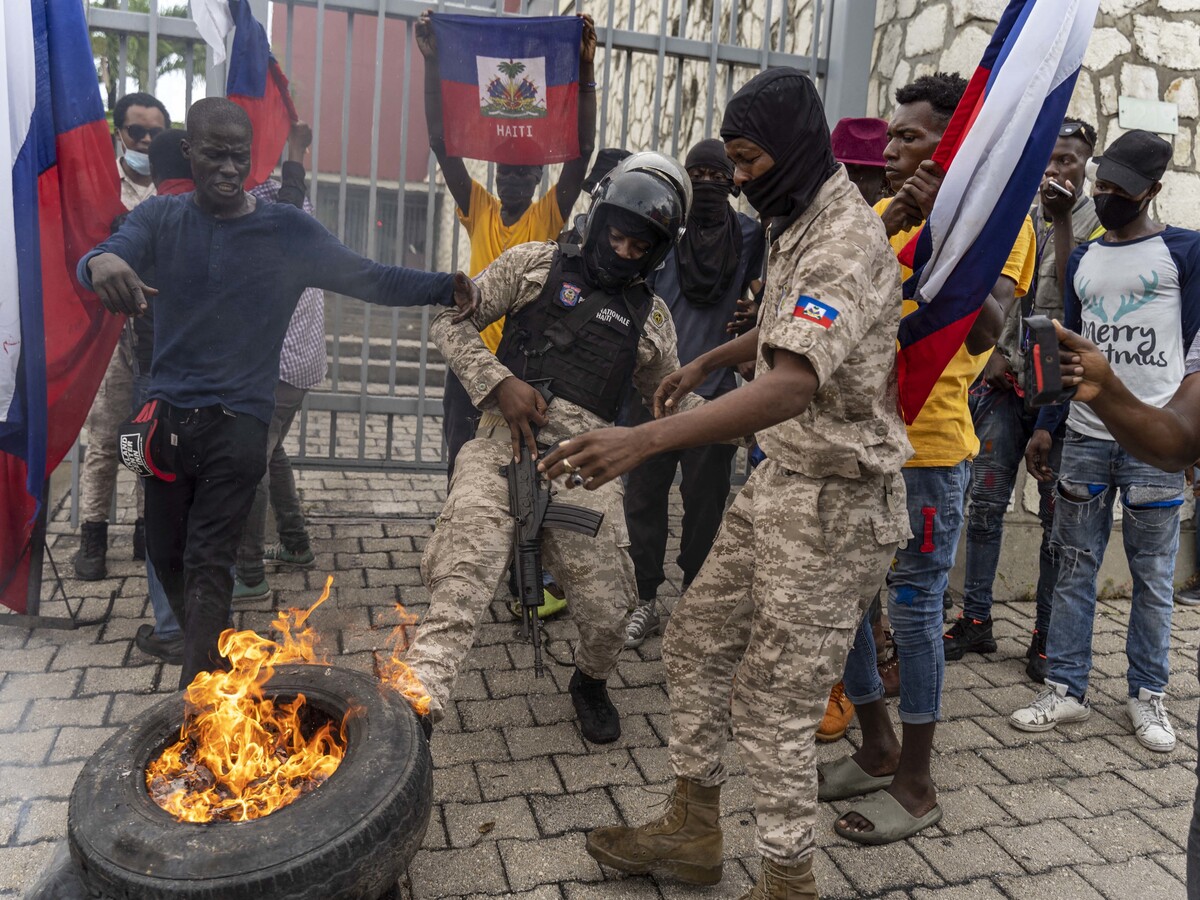
A police officer kicks a burning tire out of the way, in front of the Canadian embassy as demonstrators protest to reject an international military force requested by the government in Port-au-Prince, Haiti, on October 24, 2022. RICHARD PIERRIN/AFP via Getty Images hide caption

A police officer kicks a burning tire out of the way, in front of the Canadian embassy as demonstrators protest to reject an international military force requested by the government in Port-au-Prince, Haiti, on October 24, 2022.
RICHARD PIERRIN/AFP via Getty ImagesHaiti is a country in crisis. Armed gangs have overtaken the capital of Port-au-Prince. Electricity and clean drinking water are in very short supply and there's been an outbreak of cholera. Half the population is facing acute hunger.
Haiti's government has asked for international assistance. But many Haitians don't want that.
NPR's Eyder Peralta spoke to Haitians who are actively resisting the idea of international intervention.
NPR's Michele Kelemen reports on the debate at the United Nations over whether to send an international force into Haiti to help stabilize the situation.
And NPR's Rachel Martin speaks to Robert Fatton, a Haitian American professor of politics at the University of Virginia, about Haiti's long, complicated and painful history with international intervention.
Email us at
This episode was produced by Brianna Scott. It was edited by William Troop and Tara Neill. Our executive producer is Sami Yenigun.

 Live Radio
Live Radio